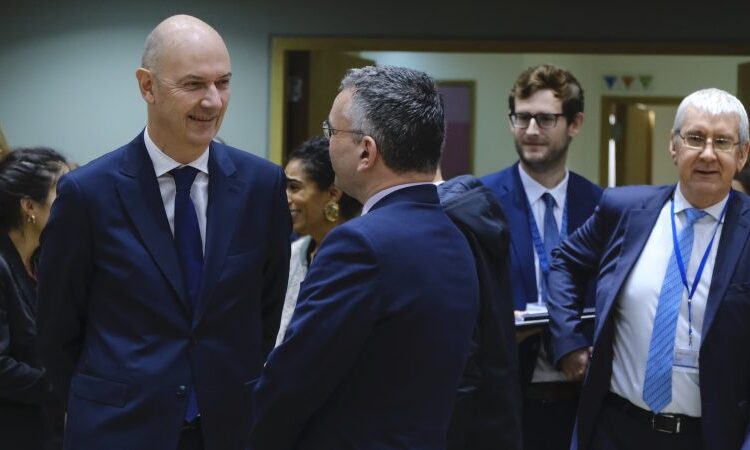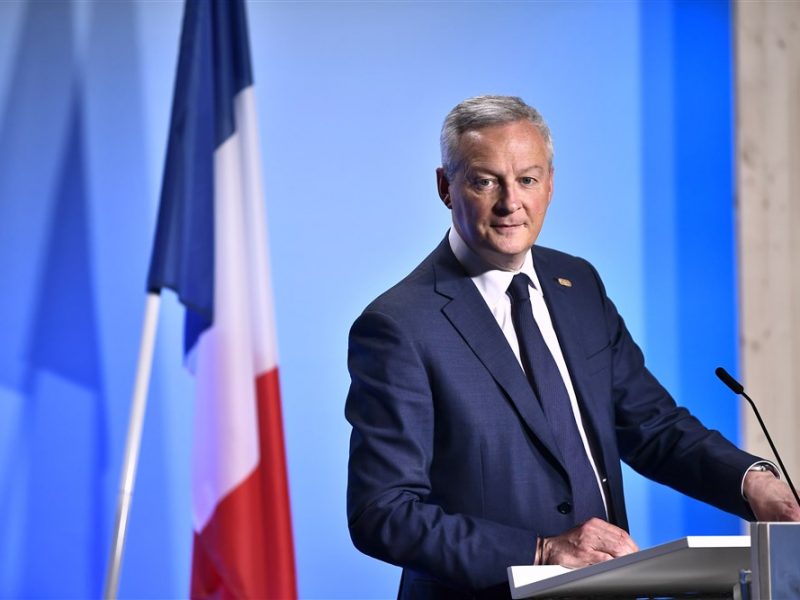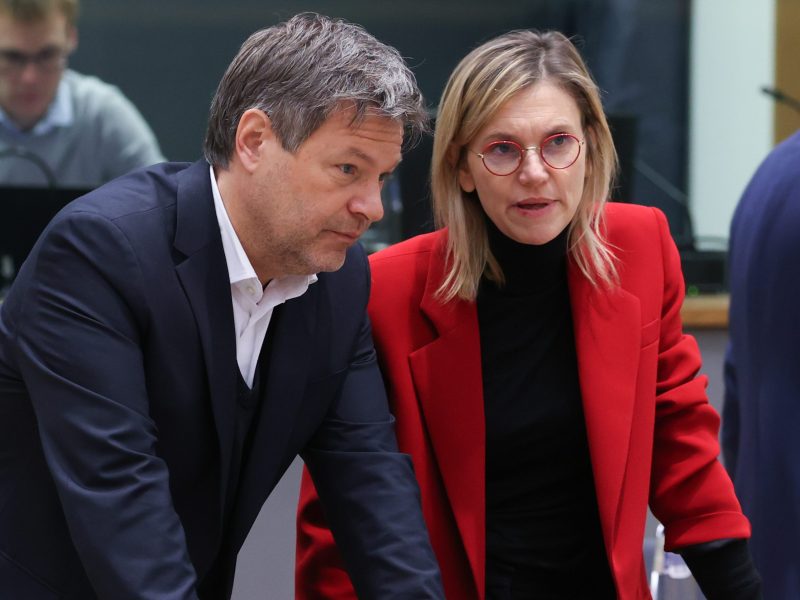
France will defend the extension of bans on the destruction of textile products and sectoral targets on critical raw materials at a meeting of EU competition ministers on Monday (22 May).
EURACTIV understands that a compromise has been reached on textiles ahead of the council on the ban on the destruction of unsold goods. This is despite reservations, notably from Sweden.
France will support the ban and will call for it to be extended to other products, notably electrical and electronic goods.
For the European Commission, not introducing a ban would distort the single market because of existing national laws in some countries – including France.
The idea of a “digital product passport” with “carbon labelling” for traceability is therefore viewed favourably by France in order to inform consumers, give itself the means to monitor the market and develop the circular economy.
France also welcomes the fact that work is already underway on energy, critical raw materials and semi-conductors, with an approach “by production target”. Furthermore, the office of the French Industry Minister told EURACTIV that “this approach is the right one for all the sectors of the Versailles Agenda set out in March 2022, including health”.
Sectoral targets on critical raw materials
Ministers will also discuss the Critical Raw Materials Act (CRMA) presented by the European Commission on 16 March.
The Commission wishes to develop an adequate regulatory framework to ensure partial autonomy for the EU in the value chain of critical raw materials that are essential for the energy and ecological transition: 10% in extraction, 40% in refining and 15% in recycling by 2030.
But France wants to go further, arguing that the targets “should be broken down by raw material” and not just taken as a whole. This “will make it possible to take precise account of European potential, which is not the same, whether you are talking about lithium or cobalt, for example”, a source from the French Economy Ministry explained.
If necessary, these objectives could be raised, particularly with regard to extraction or non-dependence on a third country, the source adds.
How to finance?
In addition, the council will also be an opportunity to discuss financing. The question of setting up a European sovereignty fund “will be raised”, EURACTIV has been told.
The creation of such a fund is backed, among others, by France, Germany and the European Commissioner for the Internal Market, Thierry Breton.
This “will allow the pooling of financial resources, precisely to avoid undermining the single European market”, argued the Minister for Industry, Roland Lescure, in an interview with EURACTIV in February.
For the moment, “no proposal has been made”. It is also “far too early” to discuss the means of financing the fund, the French Economy Ministry told EURACTIV, when asked about the possibility of a common loan.
In general, France “is quite keen at European level to see a little more clarity on the investment needs that will be necessary and the mobilisation of existing European funds”, concludes the Ministry, while France announced on 10 May the launch of a public-private fund at national level with €2 billion.
Include nuclear in the Net-Zero Industry Act
Discussions on the European Green Industry Regulation (Net-Zero Industry Act – NZIA) are likely to be more elusive.
Presented on 17 March, the NZIA aims to provide a regulatory and financial framework to facilitate the development of a more autonomous European industry.
But France wants the text to be more precise. It is still only at the stage of a “first proposal that lays down principles but needs to be clarified”, particularly on the technologies it covers, the French Economy Ministry says.
Mais la France demande de la clarté. Le texte n’en est encore qu’au stade d’une « première proposition qui pose des principes mais demande à être précisée », notamment sur les technologies qu’il couvre, avance le cabinet du ministre.
Nuclear power is indeed covered, but only partially: only new nuclear power, such as small modular reactors or 4th generation nuclear power (molten salt, etc.), is concerned, without being able to access the same advantages as the other technologies mentioned in the text, such as solar or wind power.
EU Commission came Friday (19 May) with an non-paper to better explain the benefits of the NZIA for each technology, before the Council.
France would therefore like the discussions to lead, in the long term, to the establishment of a single category for all decarbonisation technologies including “nuclear energy as a whole”, i.e. both existing and future technologies, according to the Economy Ministry.
This is a position that the Élysée defended at the end of March, ahead of an EU summit in Brussels.
However, France “supports the initiative” and its “general spirit, which is very much in line with the French green industry bill”, says the Industry Minister’s office.
[Edited by Benjamin Fox]










